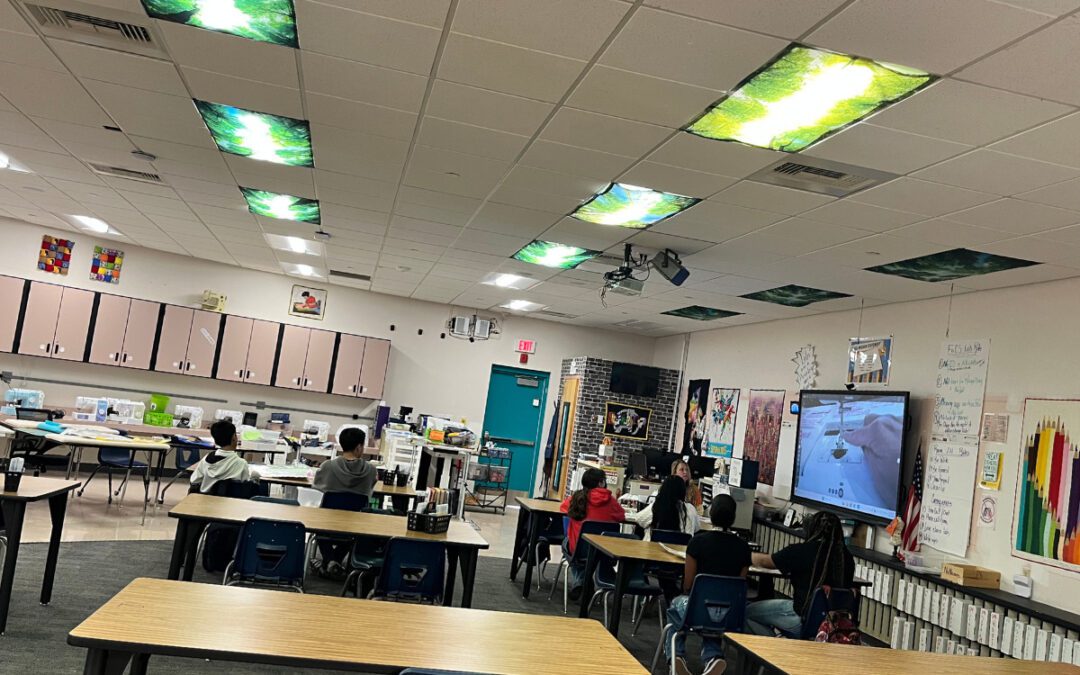
Image via Shutterstock
Nevada families have taken it on the chin the past few years; first with the COVID-19 pandemic, school closures, and uncertainty over economic life; and more recently, with rising costs and lack of affordable child care.
While the rate of inflation has finally begun to ease in recent months, the state’s affordable childcare shortage—which forces married couples with children to spend a higher share of their income on child care than in any other state—could soon get worse ahead of a coming “funding cliff” that could force hundreds of Nevada child care programs to close.
That possibility—outlined in a recent report by The Century Foundation (TCF)—could result in an estimated 10,870 children in Nevada losing their child care beginning Sept. 30, due to the projected closure of 203 child care programs.
The child care sector has been in crisis for years, but in March 2021, the Biden administration and Democrats in Congress—including Nevada Sens. Jacky Rosen and Catherine Cortez Masto—passed the American Rescue Plan Act (ARPA). The law provided states nearly $24 billion in emergency funding to help child care providers stay open and prevent a total collapse of the sector, and another $15 billion to help families afford care.
A US Department of Health and Human Services (HHS) analysis found that those funds flowed to 220,000 child care providers nationwide helping them pay their rent, mortgage, utilities, and boost wages. The funds helped save the jobs of more than 1 million child care workers, and enabled continued care for as many as 9.6 million kids across the country, according to the HHS report.
In Nevada, 685 child care programs received a combined $222.4 million in funds to help provide care to 36,000 Nevada children.
But those funds are set to expire in September, and when they do, the sector will be “starved of resources,” according to TCF’s report, and providers will have to increase prices in order to stay open and retain workers—or risk going out of business. In either scenario, families will be left with fewer affordable options.
In Nevada, for example, data from the US Department of Labor shows that the average yearly costs for infant and toddler care at a childcare center in Clark and Washoe counties was roughly $13,000 in 2022. The cost for preschool aged children was slightly lower, but was still nearly $11,000 annually.
Those numbers could surge even higher, without new federal funding.
It isn’t just the affected children and families that would suffer, either, but employers, communities, and the state as a whole. Families who can’t afford the higher costs could be forced to cut back on hours or leave the workforce altogether in order to provide care for their kids.
According to TCF’s analysis, Nevada parents would lose an estimated $30 million in earnings as a result of having to reduce their hours or leave the workforce. As a result, employer productivity would decline sharply, costing the state $28.8 million in economic activity. An estimated 755 child care workers in Nevada would also lose their jobs.
The loss of funding would hit Nevada especially hard, as the state has already been labeled a “child care desert,” with nearly 75% of children under the age of five going without access to a licensed child care provider.
To prevent this disaster, Rosen, Cortez Masto, and 38 other Democratic or Independent Senators have reintroduced the Child Care for Working Families Act, a bill that would provide crucial federal funding to help stabilize the child care sector. Democratic Congresswoman Dina Titus, who represents Clark County, has co-sponsored a companion bill in the House.
Under the bill, most families would pay $10 a day or less for child care, and no eligible family will spend more than 7% of their income on child care. The average family would save $5,000 per year on child care costs if the bill were to become law, according to one analysis.
The legislation would also provide subsidies to providers to ensure child care workers are paid a living wage and reach parity with elementary school teachers who have similar credentials and experience. It would also increase access to Pre-K and full-day, full-year Head Start programs and boost wages for Head Start workers, and provide funding for states to expand universal local preschool programs.
“Rapidly rising costs and a severe shortage of affordable child care options are financially squeezing parents in Nevada,” Sen. Rosen said in a statement in May, when the bill was unveiled. “This crisis demands action, which is why I’m proud to help introduce legislation that would help to lower costs and increase access to quality child care in our state and across the country. I will continue working to give our children the care and support they need and hardworking Nevada families the financial relief they deserve.”
Rosen has also introduced the Small Business Child Care Investment Act, which would make it easier for non-profit child care providers that qualify as small businesses to access Small Business Administration loan programs.
It’s not just lawmakers who are worried about what might happen once the federal funds run out in September.
A Morning Consult poll conducted in June on behalf of the Century Foundation found that 64% of Americans are “very” or “somewhat” concerned about the looming child care cliff.
That poll also found that 54% of parents who regularly pay for child care say that it would take them longer than one month to find a suitable alternative if their current program were to close.
Rosen’s Small Business Child Care Investment Act advanced out of the Senate Committee on Small Business and Entrepreneurship in late July, but has yet to get a full Senate vote.
The Child Care for Working Families Act, meanwhile, was introduced in April, but the bill has yet to advance, and with just 51 days to go until the ARPA funds lapse, potentially thousands of Nevada families are on the verge of losing their child care.

School choice and low funding create enrollment vacuum for Nevada public schools
As the educational landscape adjusts to structural changes like reduced federal funding, expanded school choice, and charters, enrollment in...

Bright windows and working AC: Woodbury Middle School debuts new campus
The new campus is a result of CCSD’s replacement school program where a school is demolished and rebuilt but CCSD will be pausing new schools...

Qué saber para el regreso a clases en CCSD
Esta nota apareció primero en el boletín Vegas Somos, suscribete aquí. El 11 de agosto es el primer día de clases en el Distrito Escolar del Condado...

Back-to-school fairs in the Las Vegas area (July 26-Aug 9)
There are several back-to-school fairs in the Las Vegas area ahead of the first day of school on Aug. 11—many offering free supplies, CCSD...

Back to class: What to know for the 2025-2026 Nevada school year
This story appeared in The Nevadan newsletter, subscribe here. The first day of school in Nevada is Aug. 11. Here are some reminders and things to...

Lombardo supports Trump’s executive order to dismantle education department
Nevada Attorney General Aaron Ford called out Lombardo for supporting the elimination of the Department of Education, claiming the governor “sold...




